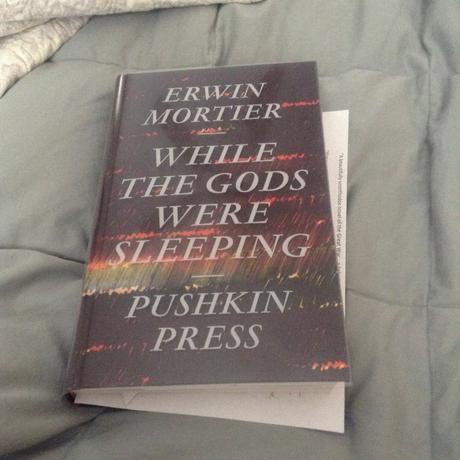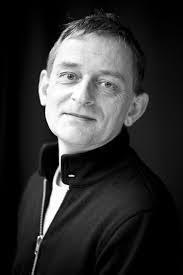
No detail is too small for Erwin Mortier. It is as though he has taken up the pen of Marcel Proust with which to tell us about World War I, and initially I became frustrated at the lack of movement. But, I pushed on and found a tender beauty in every description, and passages which I had to mark with pieces of paper torn off from the letter beside me.
We begin with an elderly woman named Helena, who is lovingly cared for by a gentle woman named Rachida. We listen to this elderly woman, speaking in the first person, tell us how she is carefully set against pillows after she has been carefully washed and combed for the day. She is set up with a writing desk, notebook, and pen. It seems evident that she is recording her memories, the details of her life with her family and then her husband. Going back in time, and sometimes staying in the present, we learn what it was like to be a girl in France when the Archduke was murdered. And then when the presence of the war was felt.
It is not easy for me to read about war. I'm sure part of that is because my son is a United States Marine, and when is the United States ever at peace? Before I was born, my grandfather was in WWI, my father was in the Korean War, my babysitter's brothers were killed in Vietnam. My husband barely escaped Desert Storm, and my son has not yet been called to the Middle East. I pray he never is. For this passage about informing mothers of their son's death pierces me to the core:
It is the women who take the blows, he was wont to say. Imagine the look on the face of a mother with two or three sons at the front, not exactly a rarity in large farming families in the countryside. The uncertainty behind the certainty that you are knocking at her door to report the death of one of her children . She has seen you coming across the yard. above the hedge of the front garden with the country flowers, which have been so immaculately hoed and raked, since weeding helps take her mind off the fate of her boys, she has recognized your hat. She has heard the gate creak. She would like her house to bean unassailable fortress, a thick shell. she sees you coming across the yard or up the garden path. She realizes that this time there is no blood on the lintel and side posts of her door, that the angel with the sword has not spared her house this time-all she does not yet know is which of her sons has fallen.
The reference to the Old Testament in this passage is beautiful. There is no Passover for the woman whose son is lost at war. She cannot strike branches of hyssop, dipped in lamb's blood, against her door frame in the belief that the Angel of Death will pass over her home. How does one bear the ravages of war when there is so much agony?
While The Gods Were Sleeping is an important book, as almost all the books nominated for the IFFP are. One doesn't "like" such a book; one is moved by it, and lives in it, and is grateful upon closing the last page that one's life is peaceful.
At least for today.
 Erwin Mortier (1965) made his mark in 1999 with his debut novel Marcel, which was awarded several prizes in Belgium and the Netherlands, and received acclaim throughout Europe. In the following years he quickly built up a reputation as one of the leading authors of his generation. his novel While the Gods Were Sleeping received the AKO literature Prize, one of the most prestigious awards in the Netherlands, and has been translated into five languages.
Erwin Mortier (1965) made his mark in 1999 with his debut novel Marcel, which was awarded several prizes in Belgium and the Netherlands, and received acclaim throughout Europe. In the following years he quickly built up a reputation as one of the leading authors of his generation. his novel While the Gods Were Sleeping received the AKO literature Prize, one of the most prestigious awards in the Netherlands, and has been translated into five languages.
Paul Vincent taught Dutch at the University of London for over twenty years before becoming a full-time translator. In 2012 he was awarded the Vondel Translation Prize.
Find more reviews at roughghosts, and David's Book World.

